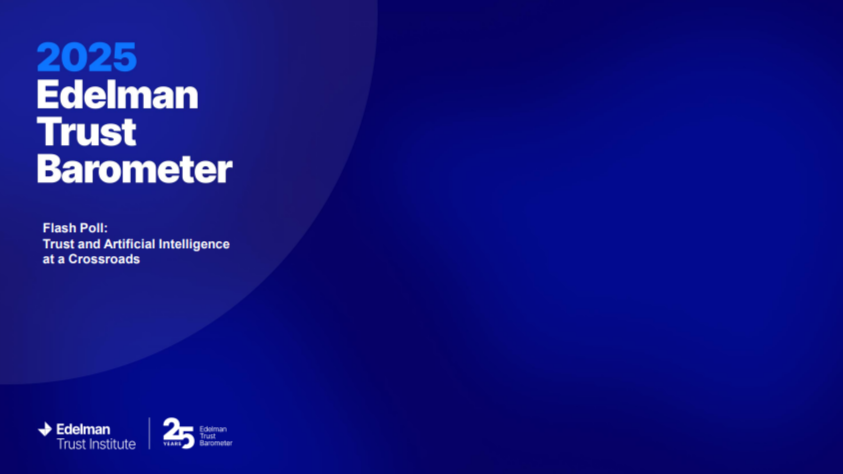As I transition from Bloomberg to comms, there are grounds for both excitement and concern as media races into the Age of AI.
While AI can churn out copy at superhuman speed, I remain ever more hopeful that the need for gifted human writers will grow as people appreciate new technology's pros and cons.
When I joined Bloomberg as a bureau chief in 2009, it was the year Bloomberg started using AI. That was long before you could order an Uber on your phone, surf the web on Google Chrome, or rent a place to stay with Airbnb.
Fast-forward to today, Bloomberg uses some form of automation in more than a third of its 5,000 daily stories.
Bloomberg News is a good case study to see how this AI revolution might play out as it uses more tech than anywhere and has been at it the longest. It's demanding Terminal customers trade billions daily on news and don’t tolerate mistakes.
Its most recent releases include AI-powered summaries of longer news stories and earnings calls. Both save time for busy professionals.
When I moved into news product development and marketing for Bloomberg a decade ago, I helped roll out some of its earliest AI applications across APAC.
That included news sentiment analysis and natural language processing. Both help make sense of the 200,000+ news and research sources available on the Terminal.
Bloomberg is both pioneering and cautious. Its journalists can’t use Wikipedia or external AI tools, including ChatGPT.
Instead, Bloomberg builds its own applications it can better trust and boasts its own finance-orientated Generative AI model, built using masses of reports and data it's been collecting for decades.
Much of Bloomberg's news technology operates behind the scenes, boosting newsroom efficiency and prompting journalists to write stories by spotting data anomalies. For all but the safest templated stories, a human reporter and editor still ensure quality before publication. It's worth noting that:
- AI is a time-saving and efficiency tool, not a replacement for experienced writers.
- It may be great at improving grammar and length, but it can't currently think, show creativity, or display journalistic integrity.
- It's a probability tool; facts can't be decided by the roll of a dice.
German journalist, Martin Bernklau, made a shocking discovery when he searched his name on Microsoft's AI tool, Copilot. The tool confused his news reporting with his private life, presenting him as a 54-year-old child molester. If you search "Martin Bernklau" on Copilot today, it cites this as an example of AI hallucinations.
Apple Intelligence recently suspended its AI feature summarising other publications' news alerts due to errors, including wrongly claiming the BBC had reported tennis player Rafael Nadal had come out as gay, and naming a world darts winner hours before the contest began.
Bloomberg Editor-in-Chief, John Micklethwait, predicts AI will change journalists' jobs more than it will replace them. Machines now produce most of its earnings headlines, expanding coverage and freeing up journalists to dig deeper.
"We still employ roughly the same number of people to look at earnings, but the number of companies whose earnings we cover and the depth of coverage around those announcements have both increased dramatically," Micklethwait said in a Bloomberg.com commentary published January 10 th this year. "I would argue, the job has become more interesting. It's not about fast typing, but working out what matters."
I concur. I started out at Bloomberg manually flashing earnings and palm oil headlines at breakneck speed, trying to beat our peers by a few seconds to market-moving news. It was stressful and laborious.
Reporters will still be needed to break news for AI to summarise, also to investigate, add context and commentary. Newsrooms will still need assignment editors. But when it comes to copyediting, Micklethwait predicts you may see AI tools coming into play more and more, restructuring, checking and rewriting drafts.
Now I'm outside Bloomberg, I'm free to use external Generative AI tools in my work. I'm finding them useful for synonyms and definitions, and occasionally tightening language.
While I don't trust them to write content, I suspect many in the comms business will be tempted by the cost, speed and lack of experienced writers.
The computer scientist and essayist, Paul Graham, foresees a world of "writes" and "write nots". He predicts that in a couple of decades, there won't be many people left with the skills to write.
"There will be some people who can write," Graham writes on his blog paulgraham.com. "But the middle ground between those who are good at writing and those who can’t write at all will disappear.”
Original writing requires thinking.
"So a world divided into writes and write nots is more dangerous than it sounds," said Graham. "It will be a world of thinks and think nots."
I know which side I'd like to be on.
Barry Porter spent more than 15 years in senior editorial and management roles at Bloomberg in Singapore and Malaysia before launching Raspberry Communications earlier this year. His agency focuses on the art of modern storytelling through content creation, media and presentation training, and ghostwriting.



